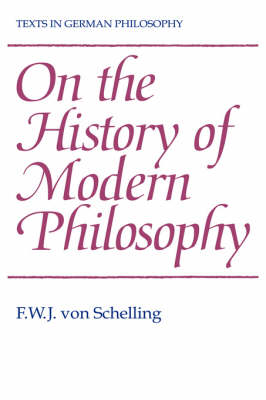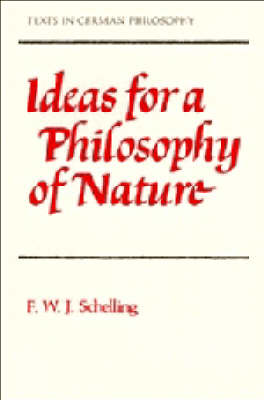Texts in German Philosophy
2 total works
On the History of Modern Philosophy is a key transitional text in the history of European philosophy. In it, F. W. J. Schelling surveys philosophy from Descartes to German Idealism and shows why the Idealist project is ultimately doomed to failure. The lectures trace the path of philosophy from Descartes through Spinoza, Leibniz, Kant, Fichte, Jacobi, to Hegel and Schelling's own work. The extensive critiques of Hegel prefigure many of the arguments to be found in Feuerbach, Kierkegaard, Marx, Nietzsche, Heidegger, and Derrida. This is the first English translation of On the History of Modern Philosophy. In his introduction Andrew Bowie sets the work in the context of Schelling's career and clarifies its philosophical issues. The translation will be of special interest to philosophers, intellectual historians, literary theorists, and theologians.
This is an English translation of Schelling's Ideas for a Philosophy of Nature (first published in 1797 and revised in 1803), one of the most significant works in the German tradition of philosophy of nature and early nineteenth-century philosophy of science. It stands in opposition to the Newtonian picture of matter as constituted by inert, impenetrable particles, and argues instead for matter as an equilibrium of active forces that engage in dynamic polar opposition to one another. In the revisions of 1803 Schelling incorporated this dialectical view into a neo-Platonic conception of an original unity divided upon itself. The text is of more than simply historical interest: its daring and original vision of nature, philosophy, and empirical science will prove absorbing reading for all philosophers concerned with post-Kantian German idealism, for scholars of German Romanticism, and for historians of science.

